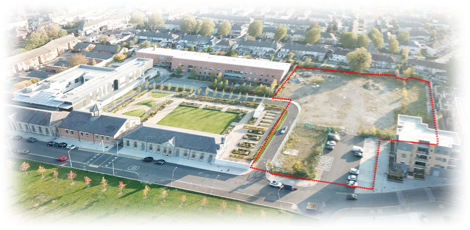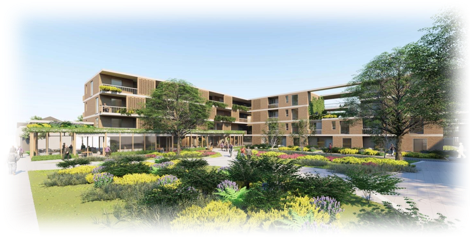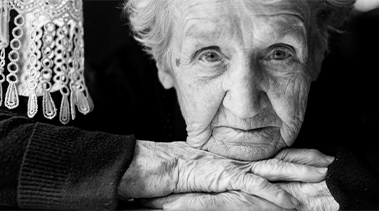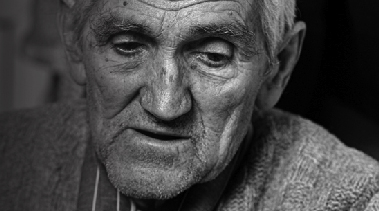Types of Support
ALONE’s Coordinated Support empowers older people by devising personalised support plans in order to help older people address challenges and find solutions.
We offer access to our services while aiding coordination and enabling older people to access medical as well as non-medical sources of support within their community to improve physical, emotional and mental wellbeing.
The service offers help to resolve all types of difficulties, give practical support and engagement with local events and activities all our services includes providing technology solutions for older people to remain at home.
Who is ALONE’s Support Coordination for?
People who:
- Need information on rights and entitlements
- Cannot access vital services
- Have physical or mental health difficulties
- Have financial difficulties
- Are experiencing elder abuse
- Are experiencing isolation and loneliness
- Live in substandard or unsuitable housing
- Are homeless or at risk of homelessness
- Require additional support to remain living in the community
The service is confidential, non-judgmental and non-denominational.
How does it work?
Here’s what we do when an older person contacts us in need of support:
- If necessary the Support Coordinator visits the older person to talk through their current situation
- A plan is put in place to help the older person resolve their difficulties and continue living independently.
- Support Coordination works closely with the older person towards a satisfactory solution.
- The Support Coordination Service works in partnership with local authorities, state agencies, community and voluntary groups.
To find a Support & Befriending Service near you, please click here.
Link to our Referral Form – Click Here
Key Facts – ALONE ECC 2024 Report
- 67.5% of older people live on their own
- Our professional Support Coordination staff provided extra support to nearly 43,982 people experiencing challenges including financial, social, housing, and healthcare difficulties in 2024.
ALONE’s Visitation Support & Befriending Service provides regular visits to an older person. We provide friendship, practical support and links to local activities and initiatives.
Who is ALONE’s Support & Befriending Service for?
For anyone who has limited social contact or feels particularly isolated and lonely.
The Role of the Support & Befriending Volunteer
- Provide companionship by visiting or calling at least once a week
- Provide small practical supports where necessary and appropriate
- Volunteers are not there to support with home help or care assistants’ tasks
- All our volunteers are trained, Garda vetted and supported by experienced mentors
The Steps Involved
An ALONE Support Coordinator will then call to the older person’s home to carry out a full assessment.
- The Support & Befriending Service is explained in detail
- When a suitable volunteer becomes available the older person and volunteer will be introduced by a member of ALONE staff
- Once the older person and the volunteer are happy with the match they will arrange future visiting times between themselves
- ALONE carries out regular check in-phone calls to ensure visits are going well
- All volunteers receive training and are supported through a mentoring system
Community Impact Network
Further information on Befriending services nationwide is available here.
Make a referral
Make a referral online here.
The Facts
- Social isolation increases the risk of developing dementia
- 45% of people 75 and over are lonely often or some of the time
- 1 in 3 older people live on their own
ALONE’s Telephone Support & Befriending Service provides daily or weekly telephone contact to an older person. We provide friendship, advice and offer information on health and wellbeing, risk management and how to get involved in local activities and relevant initiatives.
ALONE’s Universally Designed Housing provides homes and ongoing support for older people who have housing difficulties.
We provide secure, long-term tenancies and supports which enable independent living and offer security, comfort and their own front door to older people who need it. ALONE housing is assistive technology enabled and every tenant has a Support Coordinator who provides ongoing support to coordinate any services they may require.
Who is ALONE housing for?
People who are homeless or have housing difficulties. Applicants must be able to live reasonably independently or with the help of a support package provided by the HSE or another agency.
Living in an ALONE house
- Staff work with tenants to coordinate the supports they need to age in the community.
- Residents are involved in all decisions that affect them.
- Houses are maintained to a high age-friendly standard.
- Communal areas are well maintained.
- Basic furnishing is provided.
- Each tenant signs a tenancy agreement
- Residents are free to have guests, have pets and otherwise carry on their lives as they wish.
Why is ALONE housing unique?
- We focus on supporting the older people to live independently
- The level of support an older person receives changes with their needs
- Residents can also get involved in the ALONE social events and activities
The Facts
- ALONE has more than 150 homes for older people
- Currently there is a housing crisis amongst the older population
Homelessness
In ALONE we adopt the FEANTSA’s definition of Homelessness where someone is defined as homeless if they are:
- Without a shelter of any kind
- With a place to sleep but temporary in institutions or shelter
- Threatened with severe exclusion due to insecure tenancies, eviction, domestic violence
- Living in inadequate housing that is unsafe or in extreme overcrowding
Resources
ALONE’s Assistive Technologies mission is to create an infrastructure to empower older people to use technology, enabling the user to manage their social connection, health, safety and security.
Staff and volunteers are trained to Distribute, Install and Respond to technology.
Our Technology Supports are being fully integrated throughout all ALONE Services and our partnership model.
ALONE is a Tier 2 Approved Housing Body with over 40 years of experience supporting older people to age at home. Over the next 3 years ALONE’s new Housing with Support Development Unit will in partnership with the HSE, Local Authorities, AHBs and Private Developers retrofit communities across Ireland with more than 320 Universally Designed adaptable homes in clusters of 30 to 60 units.
Housing with Support offers a real and tangible alternative to Nursing Homes and in hospital care and represents a massive saving to the state. Not to mention being the best practise solution for the health and wellbeing of older people.
Projects
ALONE is part of the €15 million Demonstrator Project in Inchicore. The project is being developed by ALONE and Circle VHA with support from the Department of Housing, Planning and Local Government, the Department of Health, Dublin City Council and the HSE.


Jamestown Court
ALONE is underway with a project at Jamestown Court which will see the development of 50 Universally Designed Housing apartments beside the Grand Canal. Phase 1 completed in November 2020 with 12 new units coming on stream for tenants in time for Christmas 2020. Work has commenced on phase 2 (circa 38 new homes) which we hope to be ready for tenanting in 2023
Coming Soon…
We have a large number of Housing with Supports projects in various stages of the development process in counties Wexford, Kilkenny, Donegal and Dublin.
We want to hear from you…
Whether you represent a HSE CHO area, AHB, Local Authority or are a Private Developer with some land you think is suitably located for a Housing with Supports scheme we are always looking to build new partnerships and would love to hear from you.
Housing with Supports at a Glance
Housing with Supports is a non-medical model of housing and care provision for older people, with onsite staff supports that allows older people to live with dignity and independence.
Housing with Support Schemes provide, age appropriate designed homes in the right location, that incorporate ‘Universal Design’ principles and use technology solutions within the design that promote
- Independent living in lifetime adaptable homes with own front door
- ‘Person centred’, ‘flexible’ support plans through an ‘ablement’ and ‘reablement’ approach
- 24 / 7 staffing support on site with individual support plans delivering ADLs and IADLs for those who need it
- Focuses on maintaining and regaining skills and confidence to enable them to live independently, knowing there is someone close by if/when needed
- Community integration places an emphasis on health and well-being supporting and promoting social engagement with their family, friends and their wider community – the scheme and area they live in.




